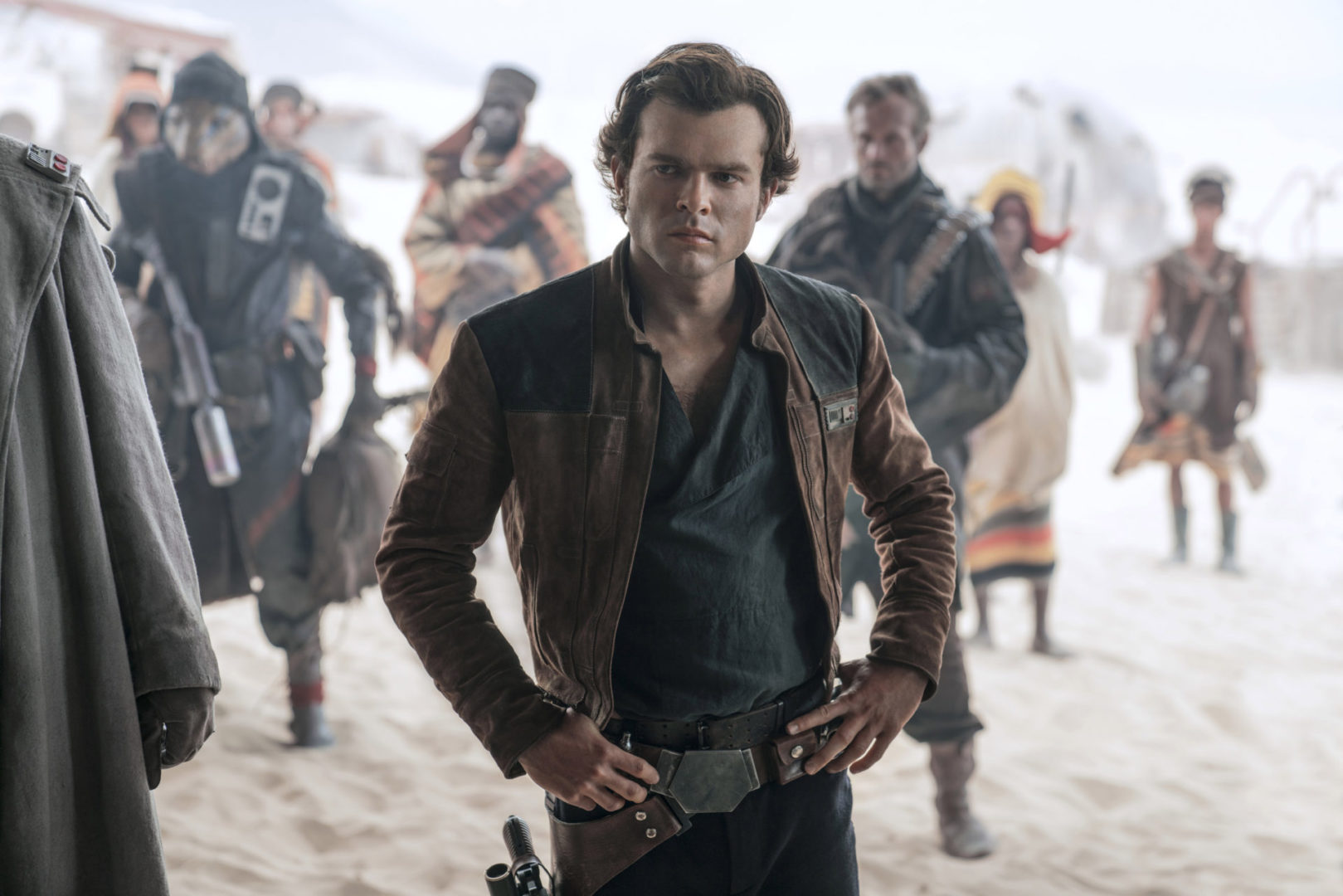Rehm Maham
“Who are your people?
“I don’t have people, I’m alone.”
“Umm…Solo.”
These three lines from the underrated film Solo: A Star Wars Story are meant to illustrate how Han gets his name, but they also demonstrate something more, that for someone to be complete they must have a people, somewhere they belong. We need somewhere we are known, feel like ourselves, and know others as deeply as they know us.
Solo makes this point about family and Han’s lack of one. I certainly find my family to be an important place I belong, but belonging to a family isn’t enough. Unfortunately, the civic clubs, volunteer organizations, and even bowling leagues many Americans used to belong to are now few and far between.

Alden Ehrenreich as young Han Solo in the Star Wards film: Solo
This trend toward the degradation of civic life is one written about by Dr. Robert Putnam more than 25 years ago in his seminal article “Bowling Alone: America’s Declining Social Capital,” Putnam identifies this trend as dating back almost 50 years now and our society is worse for it. He writes that this degradation will damage institutions and our civic culture, making us less able to talk to each other especially when we disagree.
Serving on a local board, in a PTA, at a Rotary Club, a local bar association, or even just going to a weekly trivia league were all places we would inevitably meet people we disagreed with and still talk to them. Believe it or not, we could even talk about things other than what we disagreed about. Now, people are at fewer of these events.
Our civic culture has declined and at the same time, we are less connected in our personal lives. In theory, the internet should make us more connected than ever before, but after a pandemic we spent online, people have fewer friends than before. In addition, Americans have fewer close friends than we did in 1990. We are 50 years into the degradation of civic culture and the cracks are starting to manifest more and more in our churches, our schools, and our politics.
This raises a simple question: Are we simply less able to connect with each other? I don’t think so. There are two places I have seen these civic and friendly connections besides my involvement with BridgeUSA.
First, is my work in the past few years with Texas Boys State. At the core of this leadership and civics program for rising high school seniors is the organization of all 1,000+ participants into cities of no more than forty members. These cities are randomly assigned with statesmen, as we call them, being grouped with people from all across the state: El Paso to Beaumont, Austin County to the city of Austin.

This could be the perfect crucible for discord and disagreement and yet that’s not what happens. Through the random act of assigning them to cities, we create a place the statesmen can align to in a program that emphasizes uncertainty, and the tribal instincts create strong bonds of friendships— some friendships I still hold to this day five years on. When people have something to unite around, even if they have nothing else in common with those they are around, they still form strong bonds of friendship.
So if we can still connect to others in these “tribes,” where else can we find them in today’s fractured world? Thus, the need for the second experience of mine: sports.
Now before you roll your eyes, let me make my point. Sports are not everything, and no friendship can be wholly based on sports, but they can be the starting point of a deeper relationship than fandom. For the last few years as a Louisiana State University student, just wearing an LSU shirt back home in Texas led me to meet many fellow “Tigers” and we had a point to start our conversations.
Wearing an Astros shirt in D.C. may be a bit less hospitable, but even rivalries can be a jovial part of the tribal experience— so long as you don’t take it personally. Why do we rally around these teams? In any sport the players on the field are more than just a team trying to score arbitrary points; they are avatars of the tribe behind them representing hope and joy for their fans. Generally, these teams have diverse fan bases making these games one of the last places in civic society where most people will be around someone they disagree with, so we should leverage that!
We are wired for tribes. But, we need to make sure we find the right tribes to be a part of. This summer and fall I would propose a simple plan for all of us: go to a game with some friends, put on a t-shirt for the home team, and talk to someone you don’t know. After all, you’re already in the same tribe.
